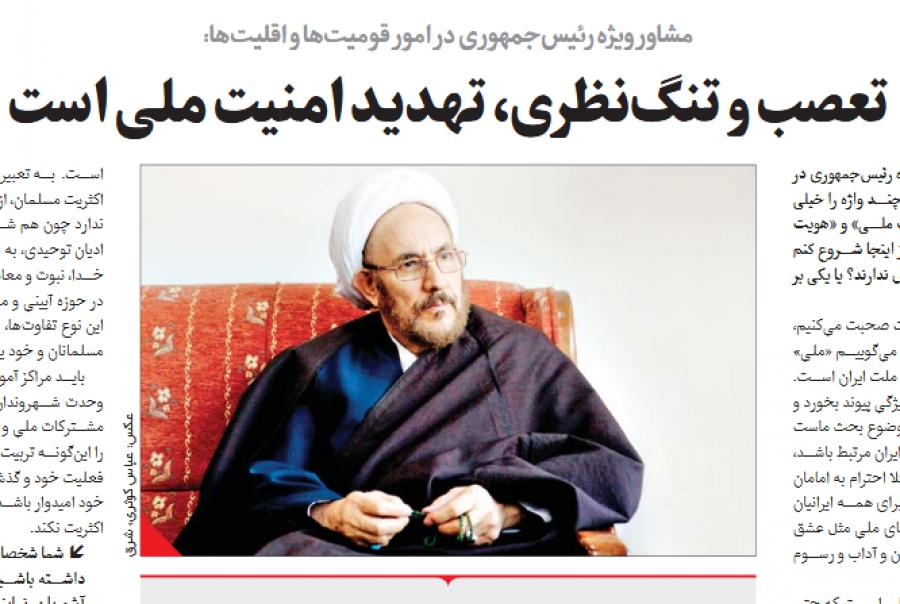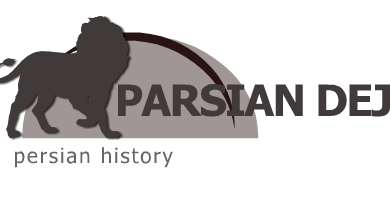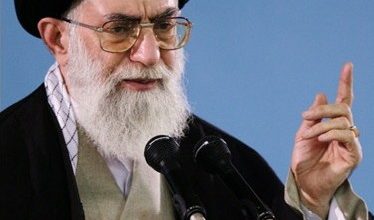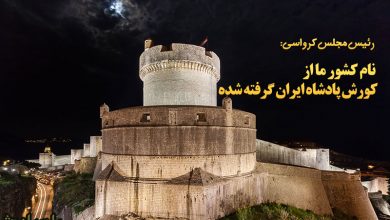Younesi: Let us be proud of Abu Muslim Khorasani, Cyrus, Ibn Sina and Zoroaster
Ali Ayoubi: East: "National Identity", "Local Identity", "Minority" and "Iranian-Islamic"; These are words we have heard a lot. But are the common sense as well as the state understanding of these words the same? To better explain these words, I went to the Special Adviser to the President on Ethnic and Minority Affairs.. Hojjatoleslam Ali Younesi is remembered by some as a minister during his time in the reformist government and is considered a purely intelligence and security figure, but every time I interviewed him, I realized that he is very dominant in the history of Iran and Islam, perhaps that's why. The reason was that the direction of this interview also went to issues such as "Nowruz" and "Kings of Iran".. Younesi does not have a stereotypical view of Iranian political eras and argues that "Islamic civilization" owes to "Iranian civilization". Eventually, he avoids the existing sects in Iran and talks about the problems that have arisen about "their dervishes".. This interview was taken last winter, on the first day of the events on Pasdaran Street in Tehran, which led to a clash between police and their dervishes..
As the President's Special Adviser on Ethnicity and Minorities, you use a few words a lot; Such as "national identity" and "local identity". I want to start the discussion from here that these two identities do not contradict each other? Or is one not superior to the other?
You see, we are talking about a nation, if we use the word "national", it means something that belongs to the whole nation of Iran.. Any discourse and word that is related to this feature and is related to all Iranians is the subject of our discussion and what is related to all Iranians is sacred and respected.. For example, respect for Imams is a religious value and is respected by all Iranians, like other national values such as love for Iran, Iranian history, Iranian celebrities and Iranian customs such as Nowruz..
Nowruz is a sacred national symbol that has even found a religious color and smell; That is, at least not anti-religious. What happens is like peace of mind and respect for parents and elders or reconciliations or helping the poor and needy of human values that happens on Nowruz.. Nowruz is really sacred and dear to us Iranians. Love of nature and enmity with violence, war and devil, are all transmitted to us during Nowruz. There are about three countries that respect this common Iranian heritage. Even our Nowruz calendar is superior to all other calendars in the world and even to the Arabic calendar. The Arabic calendar is a floating lunar calendar, necessary for worship rituals such as Hajj and Ramadan, but not suitable for annual planning and proper understanding of history.. But the Iranians cleverly Islamicized the solar calendar, that is, the solar Hijri. It is also the intelligence of the Iranians how well they interpret and use Islam. Islam rained down, grew, became global in Iran, and the result is Islamic civilization. Thousands of scientists grew up in this container, and the smallest scientist is the share of the Arabs, although all recorded their scientific work in Arabic.. Because Arabic was the language of science as well as the language of religion. Even Africans have more shares than Arabs, and Europe has even more shares than Arabs.
In the discussion of Islamic civilization?
Yes, the Arabs had the least share in scientific education and in the creation of Islamic civilization. Even Arabic literature was compiled by the Iranians. The greatest Arab writers are also Iranians. Sibouyeh is an Iranian. Even most of their religious works were written by Iranians, and many Sunni leaders were Iranians. Abu Hanifa, the leader of the largest Sunni religion, is a disciple of Imam Sadegh and an Iranian. Abu Hanifa, citing the prescription of Salman Farsi, considered it permissible for Iranians to pray in Persian. In any case, Islam grew within Iran, and Iran was more talented in accepting Islam than anywhere else. The Iranians also made a choice quickly, and Islam minus Arabism- With the Imamate of the Prophet's family – Chose. Accordingly, today Iranians have an identity that is both Muslim and Iranian. Those who try to contrast the two are either ignorant or biased. Wherever the Iranians left one of the two, they failed.
This has been shown everywhere in history, the victory of the Islamic Revolution and the relative victory that occurred in the constitution, that was the reason.. In the past, Iranian governments have tried to put a combination of religious and national values at the forefront, and this has led to their main success.. The enemy is also trying today to pit the two against each other. People inside are also trying to pit Iran against Islam and Islam against Iran, which is very, very dangerous.. What maintains our unity and cohesion is that we have these two characteristics. Together, these two can include all Iranian ethnic groups and political tendencies, all religions and minorities; That is, a Kurd or a Baluch or a Lor or a Turkmen should be proud of being Iranian and being a Muslim. Today, our youth and our new generation should be proud of their past. Our past did not start 7 years ago, not even 7 years ago; The past of the Iranians began many years before Cyrus and before Cyrus, starting with Zarathustra; Wherever it starts, this is one of the values that every Iranian should be proud of. Let the people be proud of their glory; Make Rumi proud of Saadi and Hafez. Be proud of Bu Ali Sina, be proud of Imam Reza and Abu Muslim Khorasani. We should also be proud that an Iranian is proud of Cyrus and Anoushirvan and we should not be upset and get into that shape.. Of course, there is nothing wrong with criticizing. The kings of Iran's past history, like any other region of the world, have been positive and acceptable, and others unacceptable.. What is left of the past is for this nation. Even if we consider all kings bad, this history, which was not written by the king, but the creation of historical monuments such as Persepolis, Susa, Ziggurat, Ekbatan and the like, belongs to the Iranian nation..
Incidentally, the argument is that people agree with the view that not all kings were bad, but the argument that all kings were bad is sometimes completely expressed by the assemblies; That is, there is a view that suggests that all the kings of Iranian history were bad. So there is criticism of why he makes such an argument with this view.
This may have political roots. People are not happy with most of the Qajar kings, especially after Nasser al-Din Shah and the two Pahlavi kings.. Especially the Qajarids who committed the highest betrayal of the land of Iran, territorial integrity and the history of Iran. Both incompetent and ignorant, they brought colonialism to this country; They did a lot of damage to our Iranian culture. Our nation is a brave, hardworking and civilized nation, but during the Qajar period, the kings of this dynasty kept the people in ignorance and spread the imported culture in the country.. The Pahlavis are another kind. What is undeniable and everyone agrees is that both kings were tyrants. In the Qajar government, where there was no law and no parliament, they severely damaged the country's geographical integrity.. Iran was reduced and unfortunately a small part of it remained. The Iranian people can not forget where the vast expanse of the land of Iran was from, to what extent, and these caused the fragmentation of this land due to inadequacy..
When we say that all kings are bad, we mean before we had a king. Many Safavid kings are loved by the clergy and ulema. If a scholar and religious authority speaks about the inadequacy of the kings of history, this statement does not refer, for example, to the actions of Shah Abbas.. Shah Ismail Safavid created a new Iran and Shiism in Iran and you do not see any criticism of them in the language of any religious scholar. They may protest and criticize, but in the Safavid era, especially the early kings, there was the highest unity and closeness between the clergy and the kings.. Therefore, at least the Safavid kings, or all or most of them, are exceptions and their services to Iran are not far from the eyes of history.. Before Safavid, we did not have a king for a thousand years. If some contemporary elders despise the kings of the past, they mean the Qajar and Pahlavi kings..
You talked about national identity and said that our identity is Islamic and Iranian. In addition to this "national identity", you also mention "ethnic and local identity". I will state my question with an example; A Zoroastrian in Iran has a local identity, but when we talk about "Iranian and Islamic national identity", does it not make that Zoroastrian consider himself a second-class citizen?
We have two basic issues here; One is that in order to achieve national cohesion and unity, we must finally turn to the most pervasive discourse, which is the Iranian Islamic discourse.. There may be less than half a million non-Muslims, who are also associated with the majority in terms of identity, "being Iranian". When we say "Iranian-Islamic", we mean that if someone was not in the form of either of them, that person is outside the Iranian nation.. Therefore, a pillar of Islamism or Iranianness is enough to connect a person to the nation. Both are necessary for "coherence" but one is sufficient for "bonding". In Iran, because the majority of people are Muslims, this majority establishes cohesion, and other contradictions or differences must be resolved by law and legal and value concepts, so that there is no conflict between the majority and the minority.. That's all we do. As the representative of the President in this case, who is a supporter of the rights of religious minorities, I want to say first of all that there is no contradiction between them theoretically, that is, there is no contradiction theologically, philosophically and theoretically.. There is no contradiction or disagreement on the whole, but we have small talk, fanatics, extremists and extremists.. These are there, but not in the macro. There is no contradiction between the majority and the religious minority, and in terms of national culture, there is no contradiction and it is not seen..
To say that this citizen is a "minority" and that the other is not a minority, can not the word itself have a negative connotation and create a sense of discrimination?
The word "minority" may not be a literary and moral interpretation, but it is a "legal" interpretation.. The legal interpretation is always bitter. When writing law, they have no choice but to use legal terms such as the word "divorce.". Divorce is not a good interpretation, but when they want to write the law of marriage and divorce, they have to use the same interpretation and no other word should be used.. When a man and a woman want to get married, it must be said what is the right of a man and the right of a woman. The rights of the parties must be stated in detail in the relevant documents. The law literature is harsh and bitter and completely demarcated, but the conversational, customary and social literature is not.. Yes, in the social sphere we do not tell anyone that you are a minority. Mr. Loris Cheknavarian was told that you are a minority? He reacted and said firmly to the speaker that you are a minority, I am an Iranian. It is not good to use these words in social relations. After all, a climate is a climate. The law should clarify the framework of his rights. Or the "majority", which is always in the hands of the government, is obliged to ensure its security, which is legally considered a minority.. He must provide his rights, he must perform his worship, if he has a lawsuit and he has been wronged, he must eliminate his oppression in the courts, courts and other legal authorities of the country.. The law, with all its legal literature, obliges the majority to serve the minority. It also obliges the minority to implement the law of the majority. Just like when you enter another country, you are a minority there, but the law defines the duties that you must fulfill, and it obliges that government to respect your rights.. When the law writes these two, it must be completely codified with the legal literature. Therefore, these minority and majority interpretations that are used and what is said are legal interpretations. In other words, there is no difference between the minority of monotheistic religions and the majority of Muslims in terms of principles and principles because both Muslim citizens and minorities of monotheistic religions believe in the three basic principles of monotheism and oneness of God, prophecy and resurrection. And it is religious, jurisprudential and Sharia. These kinds of differences exist even among Christians themselves, Muslims themselves, and Jews themselves.
The educational centers of future generations should define the unity of citizens of different religions based on national and religious commonalities and educate these generations in this way; In such a way that every Iranian is proud of his present and his past and hopes for his future and no minority feels threatened by the majority.
Do you personally agree with having a minority representative in parliament? For example, the representative of the Assyrians, the representative of the Christians, if we have a national identity and the minority works according to the law under the supervision of the majority, why should a minority have a separate representative? Why not be in the same frame as everyone else?
In this case, I think there should be a positive discrimination in favor of minorities. Minorities can vote for the nominated Muslim in the election.
So why is it necessary to have a separate representative?
Just because we are the beginning of governance. The Islamic Republic is at the beginning. We still have a long way to go to reach the stage of respecting the rights of citizens that the minority and the majority come to mind and every Iranian has a constitutional right.. We must endure this kind of positive discrimination. Incidentally, we should pay more attention to this positive discrimination against the "ethnic minority", that is, we should explicitly use Baluch, Kurdish, Arab, Turkmen and Sunni intellectuals in important positions and prefer them to a majority. Let. That is, if we want to choose between a Kurd and a non-Kurd who are both worthy, I say that now we have to choose the Kurd..
In equal conditions, we should choose Kurds, Baluchis and Sunnis, but unfortunately we still do not have enough and necessary culture.. We must act positively to eliminate discrimination. Unfortunately, there is still a sense of discrimination and humiliation among all our minorities. That a Sunni because of being a Sunni or a person belonging to a religious sect such as the dervishes of the right from social positions and positions, members of parliament, university professors, ministries, governors and… To be deprived is not in the interest of our national security and national cohesion. It is really in the interest of our national unity and cohesion that the likes of Spanta Niknams are not only in the city council but also become mayors and governors.. When governments such as the leadership, the president, the army, the judiciary and… It is in the hands of the majority, we should not worry about giving ground to ethnic, religious and religious minorities. Let them come, so that their rights as Iranians are properly considered and the feeling of discrimination is eliminated and the propaganda against the Islamic Republic is neutralized.. These religious prejudices and ethnic and local prejudices that exist in our country are the scourge of the country, this is our main danger, and in fact they are a threat to the security of the country, not the existence of ethnicities and minorities that together form the rainbow of Greater Iran. we give.
Prejudice and arrogance are threats. These are limited and dangerous views because they create enmity between the people and among the members of our nation.. Our security and governing organizations must curb these threatening views and put them aside.. This view is not governmental and is contrary to the view of the late Imam and the Supreme Leader and the Constitution. Those who oppose justice for ethnicities and religions are acting contrary to the grand strategy of the Islamic Republic and the Constitution.. Unfortunately, many of them have infiltrated important positions and sometimes their words and voices become louder.. Sometimes even the majority of the parliament is affected and does not dare to defend the law and act in the interest of the Islamic Republic.. But there is no greater interest than our national security and national cohesion and unity. Everything should be sacrificed for these two necessities, namely security and cohesion, not for the security and national interest to be sacrificed to the blind prejudice of some extremists and some members of political gangs..
Mr. Younesi, what will you do as a government to ensure that the rights of these minorities are not violated in the discussion of civil rights?
Of course, we do not expect the Guardian Council to issue fatwas and votes against its own jurisprudential opinion, but we expect it to accompany the interests of the Islamic Republic in other places.. Our expectation from the Guardian Council is that there should be better and more cooperation where there is a discussion in the Supreme National Security Council or the Expediency Council or the opinion of the government or the ruler..
After all, you are the established government and the representative of the people and certainly the representative of the minorities. What have you done in this regard?
At present, given the existing mechanisms and conditions, we see no other way than to resolve the issue in the Expediency Council..
You also wanted Spanta Niknam to be discussed in the Expediency Council?
Yes. Of course, we believe that before that, the opinion of jurists may be helpful. Finally, a jurist also has reasons and arguments on the basis of which he gives his opinion. Now this opinion may change with new arguments or opinions. What is not expected is that we want to say authoritarianly that a jurist should change his mind or be subject to us.. We must give this right to all jurists, especially the jurists of the Guardian Council who are in government, to express their opinion and act on it.. Of course, we complain about the Guardian Council, which unfortunately, in many cases, does not respect the interests of the government and the people in elections; Especially when it comes to approving or rejecting representatives of religious and ethnic minorities. The Ministry of Intelligence and the Security Council can comment here and their opinion can be a measure and decision; Because these two institutions, due to the type of mission they have, better consider the interests of, for example, Kurdistan and Sistan and Baluchestan or other places that do not conflict with security and national interests; But because the disqualifications are mostly political or for some other reason, the officials in these provinces, who are usually not political and have no affiliation with any faction, are, of course, perhaps closer to the fundamentalist faction if we want to give them a political relationship; But they always had another interest; Because their view has been on security and national interests. Unfortunately, in the last election, we also had the problem that the Guardian Council did not consider the provincial security interest..
There was a problem about their dervishes in Tehran a while ago, where does the problem with their dervishes come from?
The absolute majority of sects inside Iran, whether religious sects such as Ismaili or Zaydi or traditional and ancient sects, most of which are also branched from Shiites. None of this is definitely a threat and should be fully managed, strengthened and protected in accordance with their rights, let alone cause discord.. By reinforcement, I mean that they should be taken into consideration and that their citizenship rights should be respected. We do not have a problem with this now. The government must respect their rights. Regarding the Dervish and mystical sects, which are also numerous in quantity, I must say that the origin of most Islamic sects in the Islamic world is Iran, and the Muslims of the world are mostly followers of one of these Dervish sects.. For example, the Qaderieh sect. They are very large in population and in Central Asia or the Muslims of India, most of them belong to one of these dervish sects.. The Sunni Muslims of Iran are also subject to one of these sects. Some of these mystical sects are also Shiites, such as the Gonabadi dervishes or the Ahl al-Haqq, as well as the bow of Imam Ali. (ع) They pay attention. All these dervish and mystical sects in Iran, their culture, essence, literature and education are in line with a noble citizen, good and obedient to a government; That is, they are not essentially a political or destructive current. After all, all sects are inherent in peace, morality, altruism, service to the people, and worship of God.. These are great assets for the government; Because they are calm, noble and obedient citizens. They are the best capital to confront the extremist currents such as ISIS and the Taliban, which are the scourge of Islam today.. These sects are our friends and helpers. We must use them to communicate with the Islamic world. What connects us to Islam in Africa or to Islam in Central Asia is this dervish; Because most of the Islamic world are dervishes, most of the scholars of the Islamic world are dervishes.
What do they mean by dervishes?
That is, they are subject to a sect. As they were all dervishes in the past, most of the heroes of Iran are dervishes. Most of our elders were dervishes. Shiism also came from the heart of a dervishes, the Safavids were a dervishes sect that gradually distanced themselves from dervishes and the way and approached jurisprudence. Now the word tariqah is more attractive; People of sects and dervishes and differences. This is the predominance of the Islamic world, and if it were not for this opportunity, the whole Islamic world would have turned to Wahhabism and ISIS..
So what is the problem with this sect in Iran?
In my opinion, this is a mistake made by a part of the government and the government. For example, for some time, extremist and extremist people had problems with the etiquette and appearance of "Ahl al-Haqq" and dealt with them under any pretext, and so some of these dervishes, in protest, made moves and harmed themselves.. It even got to the point where everyone from the government to the leadership and the president came in to finally stop these issues and the clashes and attacks on this sect..
I believe other things are the same. This is the work of a few anti-sectarian and bigoted people. Of course, their number is small, but because they act coherently, they cause trouble for the Islamic Republic.. Otherwise, we should not be fragile in terms of ways, we should be supported by them. They support the Islamic Republic and the security of Iran. Unfortunately, we see that many times the dervishes do not tolerate it. These actions and these restrictions are not restrictions that are the will of the government. As someone who has been the Minister of Intelligence for seven years and has been in other places before, I have to say that what the government wants is that no sect, religion or minority has the right to campaign.. For example, Christians want to have provocative propaganda for themselves, or sectarians want to invite and provoke others, this is the government and the rule of opposition.. The government says that everyone and everything should be in its place, that the gentleman should be in his own mosque, that one in his own Hosseiniyah, that one in his own monastery and the other in his church.. Everyone wants to do any permissible activity in their own place of worship, but it is natural that no one has the right to touch, provoke, propagate or preach.. What should not be is propaganda, whether public or secret. Secret means to deceive the youth, otherwise they can preach in religious places, whether secret or public, but only among their own followers.. But whether they want to recruit, for example, a Christian, recruit a Muslim or recruit a Christian Muslim, the government opposes, because this behavior naturally disrupts the security of the country and creates insecurity and concern for everyone.. Evangelization by one religion and the way of other religions should not be.
Was what happened to their dervishes in Tehran a while ago because of propaganda?
Incidentally, the very event that happened to them and limited them, both indirectly and indirectly, was propaganda for them at no cost.! If some of them are arrested and imprisoned and some people go and work for their release every day, this is a kind of propaganda in their favor, and unfortunately few fanatics and extremists do not know this and are exposed to their citizenship rights.. Well, if they are guilty, like other citizens, there is a legal solution, and if someone or a responsible institution or organization complains about them, they should take legal action.. Dealing with any person or group or sect or religion in the country, outside the framework of the law, is not acceptable and is illegal and violates their rights..
In the past year, several protest rallies took place in different parts of Iran. Did you see any traces of minorities or ethnicities in this regard?
Not at all. This shows that our ethnic and religious minorities are less than not; Even more than the majority of the society, they love and protect national security, and in these recent unrests, there was not the slightest trace, support or stimulation from it.. We did not have any such problems in Kurdistan and Sistan and Baluchestan. When we say Kurdistan, it is true that Azerbaijan and other places also have Kurds. Now, they may have entered there to some extent, but we did not have an acute problem in Sanandaj either.. In Zahedan, we basically had no problems.
بنمایه : Azeri website







Why are you no longer active?
Hello Ali Jan
Doing a good job of filling, hoping for God, there are many articles in the queue for publication, but the situation is a bit difficult .
Hopefully soon
Ibn Sina, Cyrus, Zoroaster, and many great men of Iranian history should be proud of it, and it is wrong to make a dichotomy on Iran's human heritage.
But the character of Abu Muslim Khorasani, who was nothing but a murderer by nature in the service of the Abbasid caliphs, who took the lives of tens of thousands of people, including Iranians, has no place to be proud of.